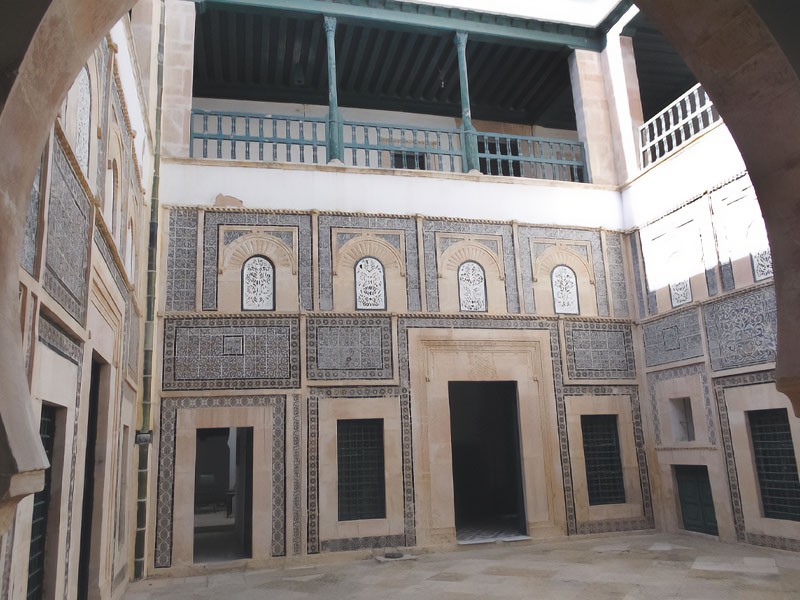Gallawi House: The Impact of Social and Cultural Life on the City Of Sfax between the 18th And 19th Centuries
Issue 46

By Alia Arabi
The structure of Gallawi House reflects Sfaxian culture, which is distinct from the cultures of other Tunisian peoples. The Sfaxians inherited their talents and their love for work and learning from their ancestors; Sfax has long been known as a city for work, not fun.
However, in our time, the daily life of Sfaxian society – which reflects Tunisian society in general – has been affected by modernity and a Western mindset that views the individual as merely an unproductive consumer who is not free.
Sfax’s traditional clothing is now worn only on a few occasions such as circumcision and wedding ceremonies, and the youth of today are unfamiliar with this traditional clothing because it has been replaced by new clothes imported from the global market.
The same is true of Sfaxians’ practice of preparing 'Al Awla' (a method of preparing food at home) according to each season of the year; only elders in ancient Sfaxian families still engage in this practice.







































































